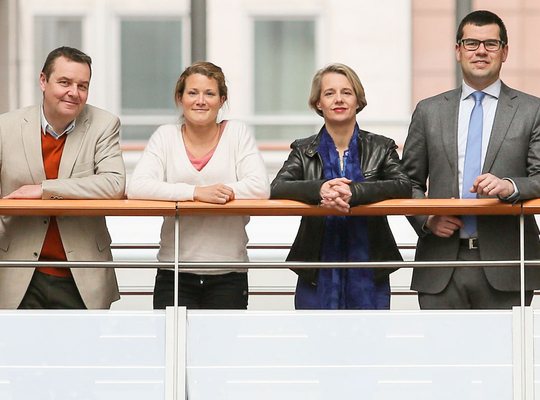You are here
The European clock is ticking, but the Commission is not waking up

The annual State of the Union by President of the European Commission Jean-Claude Juncker was a rather uninspiring account, the N-VA’s Members of the European Parliament think: “Even the most fervent Europhiles can apparently no longer put over the need for European cooperation in an engaging way.” The focus of the Commission is wrong, the party believes. So it is asking for more common sense in Europe.
“Juncker heaps praise on the ECB, but entirely fails to mention that savers are having their wallets dipped into in this regard,” Anneleen Van Bossuyt states. “If this carries on, we will never convince citizens of the advantages of European cooperation.”
Her colleague Sander Loones has also noticed that the European Union is not at ease with itself: “The President of the Commission is playing the card of the Southern European member states and is opting for more Transfers The money flows from Flanders to Brussels and Wallonia are called transfers. The transfers from the federal budget, the Financing Law and social security amount to between 6 and 7 billion euros per year, and 11 billion euros if debt repayments are included. The size of the transfers is always contested by the French-speaking side or they are just referred to as normal solidarity contributions. A study by Vives (KU Leuven) revealed that the transfers did not serve solidarity, but had a paralysing effect on the growth of both the Walloon and Flemish economies. transfers , more irresponsibility and more European interference. To build a dam to counteract this, we will have to seek the support of our allies in the North.”
Where is the green stamp?
As for Mark Demesmaeker, what struck him was the lack of a clear green stamp in Jean-Claude Juncker’s speech: “And yet Europe can represent a clear added value in the field of the environment and public health. Today, 400,000 people a year die from the consequences of air pollution. This figure must be brought down drastically. And the environmental rules in Europe need to be upheld better.”
Where is the asylum ceiling?
Helga Stevens, finally, welcomes the more robust security policy, with a European border force and coastguard among other things. However, she is still waiting for a maximum limit to be set on the number of asylum seekers that can come to Europe: “We must offer as many people as we can hope for the future in their own region. But we can only increase support from the European citizen for migration by setting a clear ceiling.”

